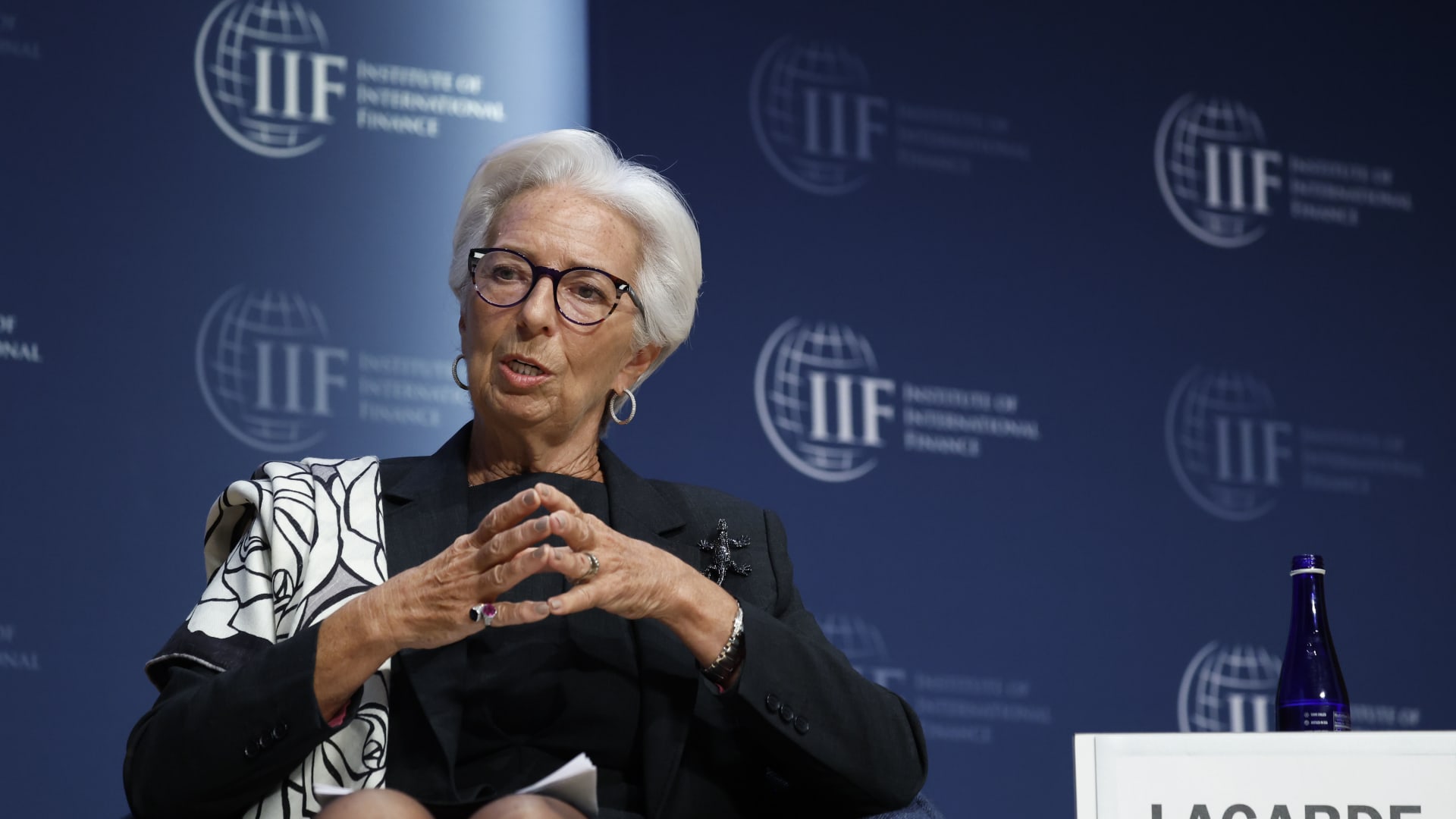Sticky inflation means the European Central Bank could be far from a policy pivot

The ECB is dealing with both record-high inflation and a slowing economy.
Bloomberg | Bloomberg | Getty Images
The European Central Bank is set to hike interest rates again on Thursday, with policymakers in Frankfurt shifting their focus to core inflation and trying to predict when sky-high consumer prices might fall.
Euro area inflation has dipped in the last few months as energy prices have come down. But core inflation, which strips out energy and food, keeps on rising at a steady pace.
“With the economy proving more resilient to the energy shock and the labour market still tight, we think price pressures stemming from the services sector will take much longer to materially cool,” said Paul Hollingsworth, chief economist for Europe at BNP Paribas, in a recent research note.
The euro area economy is proving more resilient than expected and even avoided a contraction in the last quarter of the year. France and Spain recorded growth which made up for the shrinking output of Italy and Germany.
Recession fears subside
Meanwhile, the International Monetary Fund upgraded its growth outlook for the world economy for the first time in a year citing China and stable U.S. demand. That should benefit the euro area as well as its both China and the U.S. that are the biggest export destinations of euro area countries.
“Gas storage is up and gas prices are down. Inflation is falling and uncertainty is declining. As such, we have removed the recession from our 2023 forecast,” said Mark Wall, an ECB watcher at Deutsche Bank, in a recent research note for clients.
Wall’s baseline expectation sees the ECB hiking 50 basis points this week, 50 basis points in March and a slimmer 25 basis points in May — ending up with a terminal rate of 3.25%. “We expect rates to remain on hold until mid-2024 when the ECB starts cutting by 25bp per quarter until rates return to neutral in 2025.”
Inflation fight
Another big topic for the European Central Bank this week will be quantitative tightening — the shrinking of its balance sheet and what the euro zone’s central bank wants to achieve with this policy.
Anatoly Annenkov of Societé Generale said in a recent research note that the bank could look to use a speedier reduction in its balance sheet to aid its fight against sticky inflation.
“Financial stability considerations may prevail for now, supporting a slow start, but should the ECB fail to make progress with core inflation, many governors are likely to see things differently towards the end of the year,” said Annenkov.









